Poetry
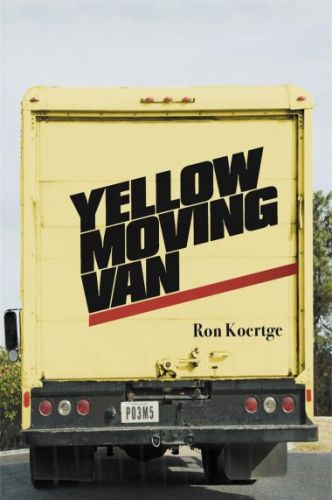
Yellow Moving Van
Yellow Moving Van is a collection of relaxed and buoyant and sometimes very funny poems that address Desi & Lucy with the same courtesy as Walt Whitman. The author celebrates his roots in the Mid-West and a few pages later stops off in Transylvania. These poems like to sometimes embrace and sometimes confound expectations, and they all stand together as enemies of the murky and pompous. There is apparently no subject—Prometheus, a fifty foot woman, or Death himself—that is unwilling to fall under his spell.
Olympusville
Imagine a heaven populated by familiar Greek gods: Olympusville. Sexy Aphrodite, gorgeous Adonis, Ares the warmonger, Artemis the huntress, wise Athena, bitter Demeter, and the like. But imagine also each of these denizens of Olympus stepping forward and revealing qualities that any reader can recognize: Hades, ruler of the underworld, lovesick for Persephone. Baffl ed Hephaestus, god of fire, husband of Aphrodite who can’t keep her clothes on. Add a defiant Sisyphus and a cadre of grumpy water nymphs and those are only some of the inhabitants of Olympusville—a fantastic and, in the hands of poet Ron Koertge and illustrator Alicia Kleman, endlessly intriguing world.
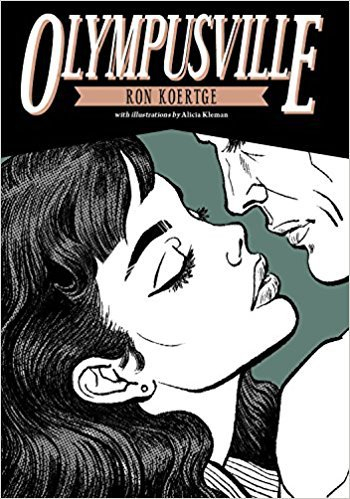
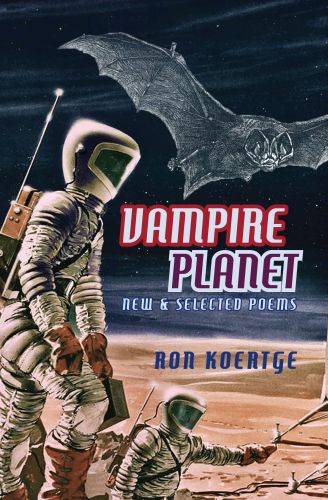
Vampire Planet
In Vampire Planet, Ron introduces readers to Dr. Frankenstein’s frustrated fiancée and gives an alternate reading to the Bible story about Lot’s nameless wife. He rues the loss of a favorite pair of underpants, attends a bachelor party where Mr. Magoo makes an appearance, and suggests what cheerleaders will be like in the future. Death comes home from a business trip to his favorite meal, and Epeius–who designed the Trojan horse–turns out to be a better architect than a warrior. Saint George muses about girls, and on her honeymoon Mrs. Mark Trail wishes her husband would take his eyes off that moose and get down to business. Like Reverend Ike and John Lennon said, “Whatever gets you through the night”–this book will do that and carry you right into the next day. Guaranteed.
Sex World
In Sex World, Ron eagerly tries his talented hand at Flash Fiction. In “BFF,” a teenage girl from the near-future orders friends from Amazon. A few pages later, a robot who travels what is left of the world and observes through “well-engineered eyes” claims that the sound of turbines is his lullaby. A fed-up daughter finds a foolproof way to do away with her awful mother, while in “Jesus Dog” a mysterious animal helps a broken man recover. A page from Lois Lane’s secret diary reveals a shocking secret. Many mothers and daughters will see themselves in Ron’s version of the Persephone & Demeter story. Readers are ushered aboard a mysterious train and later invited to listen in as a teacher chats with a peculiar student named Oliver Oliver. A distant relative of Leda takes her boyfriend to the arboretum with grisly results, and Mr. Weenie tells his daughter how he and her mother met. “Sex World,” the title story, turns out to not be about sex at all, but heartbreak. In these and dozens more, Ron lives up to his reputation as someone who is funny the way the truly serious often are.
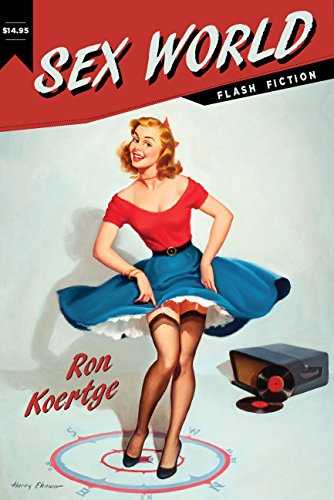
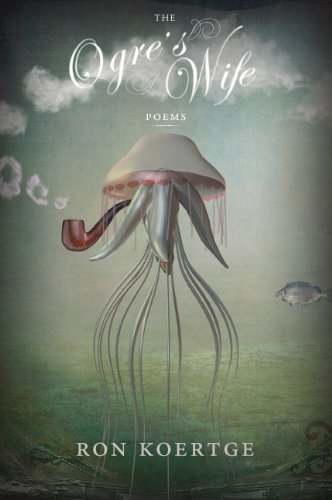
The Ogre's Wife
The Ogre’s Wife introduces readers to Little Red Riding Hood all grown up with a fondness for salsa and chips, explores the thorny relationship of Jackie Robinson and Pee Wee Reese, spies a Trojan pony and the children it bamboozles, and offers an alternate reading to the Icarus story. He meets Walt Whitman on the set of an X-rated movie, attends his gardener’s funeral, and goes to his beloved race track. Seminal figures from pop mythology speak up in unexpected ways: The Beast, transformed by Beauty, hints that his new life isn’t exactly what he expected. Gretel enrolls in night school, the ogre’s wife from the beanstalk yarn writes a heart-rending story on her cutting board, and a group of fourth-graders on a field trip encounters Death. Occasionally setting aside free verse, there are couplets about a Bette Davis movie, a sestina about routine blood tests, a villanelle set in a topless bar, and a set of haibun that chronicles an entire day. Reverend Ike and John Lennon said, “Whatever gets you through the night.” This book will do just that and carry you right on in to the next day, guaranteed.
Indigo
Traditionally, the ghazal, an ancient Persian form, has a lot of requirements (couplets, rhyme, refrain), but one specific subject—love. Especially illicit and unattainable love. So what are readers to make of Indigo, a collection of Ron Koertge’s ghazals which are about, among other things, the Seven Dwarfs, Technicolor, and Mothra? Well, you probably can’t beat him, so you may as well join him as—with a white hot imagination and irrepressible and unpredictable lyricism—he bends a few rules and breaks the rest. And yet his subject is still love. But not illicit or unattainable, since what he really loves is language. And language loves him back. There it is on every page, lying at his feet, panting.


Fever
Of Fever, Billy Collins says: “Ron Koertge can elevate the ordinary places of America — the backyard, the classroom, the mall — into scenes of mock-epic significance. He can just as easily lower the mythic worlds of Superman, Ozymandias and Cinderella to a level just a few inches above the bathetic. And he does all this with a charming combination of wit and empathy, satire and sweetness.”
Geography Of the Forehead
In Geography of the Forehead, Ron Koertge offers us nearly sixty poems, each a brilliant testament to the human condition. From short, acerbic lyrics to hilarious prose poems about nutty German professors and Dracula’s teenage girlfriend, readers laugh out loud at simple turns of phrase before they are jerked sober by startling insights into the way we live–and Koertge knows how we live. Nothing in American culture is safe from the scythe of his irony–not Joan Crawford, not Superman, nor Frank Sinatra. He lampoons our literary heroes and historical giants with the gentlest touch, and we find ourselves grinning before we realize that Koertge is redefining what we thought we knew. His poems are alternately funny or poignantly sad because they are always true, and that truth lingers long after the reading is over.
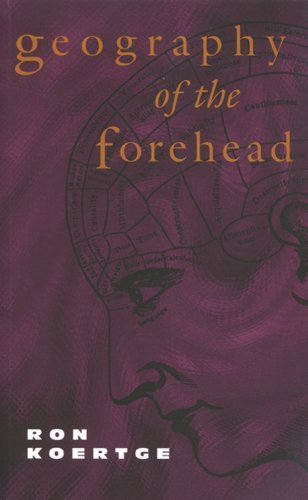

Making Love To Roget's Wife
In Making Love to Roget’s Wife, Ron Koertge offers his best work from twenty-three years and a dozen earlier collections. In plain, unpretentious language, with brutal honesty, Ron Koertge can meld violence, love, human ugliness, joy, and modern depravity into a short lyric that makes us laugh out loud or socks us in the gut. His images arrive in giant clown shoes – cigars the size of Florida, the plastic man’s counter-length arms – or neatly packaged in carefully observed detail, as he writes of the “black little hearts” of ants or an ape’s “dark and leathery breast.” Through every poem, there runs a constant and sincere humanity, a voice that laughs at itself, often goads us a bit, but always stuns and enlightens us when we discover something of ourselves gambling with the crowd at the racetrack, driving from the parking lot of the Mexican restaurant, or shambling with the distraught parent leaving the hospital.